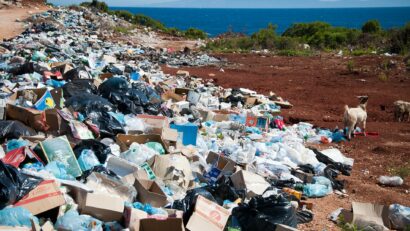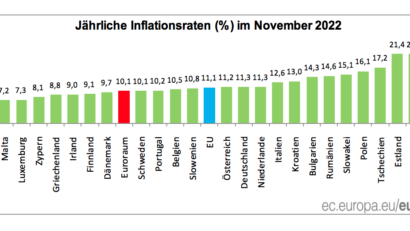
“Creating Prosperity Together”: How the social economy model saved the English city of Preston
For a long time, Preston was the centre of industry in England. But when the city’s big companies decided to move production to low-wage countries, the economy collapsed and Preston plunged into a deep crisis. The people of Preston didn’t let it get them down, however, and together they rebuilt their economy. Instead of international corporations and low wages, they relied on local production and co-determination. Thanks to the “communal prosperity” model, Preston is booming again today.
Preston was the economic engine of England for a long time. In the city in the northwestern county of Lancashire, the textile industry boomed in the 19th century. Products from Preston were exported all over the world, and the city grew rapidly. The boom did not last forever, however. After the Second World War, large parts of English industry migrated to low-wage countries. The economy crumbled and with it the city. Just a few years ago, Preston was considered one of the poorest areas in England.
But then came the turnaround starting in 2012. The city reorganized itself to boost its own economy. It was understood that no help would come from big investors or the government in London. The results of their effort can be seen: Unemployment is falling, the city is growing, and the economy is booming. And how did the people of Preston do all this? With an idea called Community Wealth Building.
Community Wealth Building: Business for the People, Not the Corporations
But what is community wealth building? Broadly speaking, it’s an approach that shapes the economy to serve local people, not managers in corporate headquarters or investors in tax swamps. Preston achieves this primarily through four principles:
Working with what’s there
Producing and buying locally
creating good working conditions
Shaping the economy
[embedded content]
Preston’s “Communal Prosperity”: Working with what’s there
Preston knew that no outside savior would come to help the city. If they wanted to change their lot, the people of Preston would have to tackle it themselves. So the first step was to look at how the city’s economy was set up at the time.
While many businesses had left Preston, there were also institutions that were still in town and would remain. These included the local university, a housing cooperative, the pension fund, the town hospital, and the local government. These institutions were called anchor institutions because they were firmly anchored in the city and would not leave.
The anchor institutions spent many millions annually. The hospital needs fresh food and laundry every day, the housing cooperative needs materials and people to maintain the houses, and the local administration needs stationery and furniture. The list goes on and on. These expenses were looked at by the city government. The result: these institutions hardly ever shopped in Preston. Only about 5 percent of the spending was done in their own town. The rest of the money went to other parts of the country and the world.
Produce locally, buy locally
To boost Preston’s economy with the “communal Prosperity” concept, these anchor institutions had to be persuaded to spend more money in their own city. Since they all had a vested interest in seeing the city do well, all institutions were willing to buy more locally. The result of this was that the order books of local businesses filled up. This allowed those businesses to hire new people. Now, more people had jobs and more money in their pockets to spend again. That further boosted the local economy.
Where the increased demand from anchor institutions could not be met by existing businesses, new ones were started. Preston University assisted the start-ups with its expertise.
By having anchor institutions, such as local government, buy more from their own city, more jobs could be created in Preston. (Foto: pixabay/PaulCosmin)
Co-determining the economy
There was also a plan for when new companies were founded. What should not happen is that all the profits end up in the boss’s pocket and the workers have no say. The people of Preston should decide for themselves how they want to shape the economy of their city and also reap the fruits of their own labour. The solution to this: cooperatives!
The university supported the people of Preston in setting up cooperatives, in which they themselves can determine how work is done and what is done with the profits. This, it said, strengthened co-determination in the city and meant that the profits generated ended up in the workers’ pockets rather than in investors’ accounts in tax swamps. The cooperatives also had another positive effect. Because the workers themselves determine their company policy, their jobs are not outsourced to low-wage countries.
A wage you can live on
It was also important to the people in Preston and its “communal prosperity” concept that everyone should be able to live on their wages. What is the point of working in a cooperative or one of the anchor institutions if the money is not enough to live on? That’s why most local institutions, businesses and cooperatives decided to pay a wage that is above the minimum wage and that people can live well on. Now that people have more money in their pockets, they were able to consume more, and the local economy continued to grow.
At the same time, however, a lot of money was put into providing a good education for the city’s workers. The city’s university provided training and counselling, and other anchor institutions such as the local government and the housing cooperative also invested more in the education and training of the local workforce.
Preston’s “Communal Prosperity” Model as a model for success
Preston’s four principles worked strongly together. Anchor institutions looked to their purchasing not only to ensure that local production took place, but also that companies paid their workers well and gave them a say. While not everything could be produced and sourced locally, the percentage of anchor institutions’ spending in their own cities increased sharply. When the Community Wealth Building project started in 2012, it was 5 percent. In 2016, it was more than three times that, at 18 percent!
That wasn’t the only thing that had improved in Preston. From 2014 to 2017, unemployment was cut in half. At 3.1 percent, it was below the statewide average of 4.6 percent. The city’s economic development was so successful that it became the most up-and-coming city in the country, overtaking the capital London in quality of life.
Mondragón is the largest cooperative in the world. For Preston and Cleveland, Mondragón is a source of inspiration. Mondragón workers built the roof of the famous Guggenheim Museum in Bilbao, for example.(Foto: Unsplash/Jorge Fernández Salas)
Social business: Global trend
Preston’s success has created a buzz and encouraged imitation. Today, there are 20 other cities and communities that also use the Community Wealth Building approach. This approach did not come out of nowhere, however, but has its roots in the U.S., in the former industrial metropolis of Cleveland. Similar to Preston, industrial companies in Cleveland migrated to low-wage countries. The result was a fallow economy and a decaying city. However, through a regional economic plan and the formation of cooperatives, Cleveland achieved economic recovery.
Cleveland, in turn, got its inspiration from the small Basque town of Mondragón. There, the Spanish Civil War had devastated the local economy. Under the guidance of the left-wing priest José María Arizmendiarrieta, a technical college and several cooperatives were founded in the small town. Today, Mondragón is the largest cooperative in the world, with branches in 31 different countries and over 80,000 employees. The entire cooperative federation is democratically run and owned by the workers. Läs mer…







